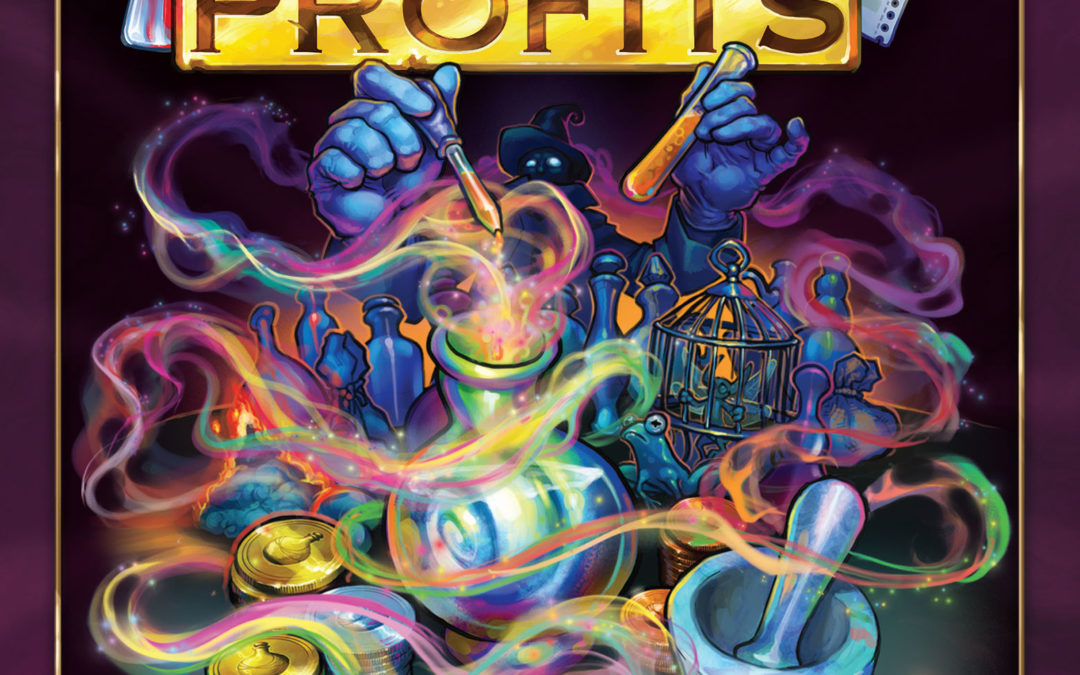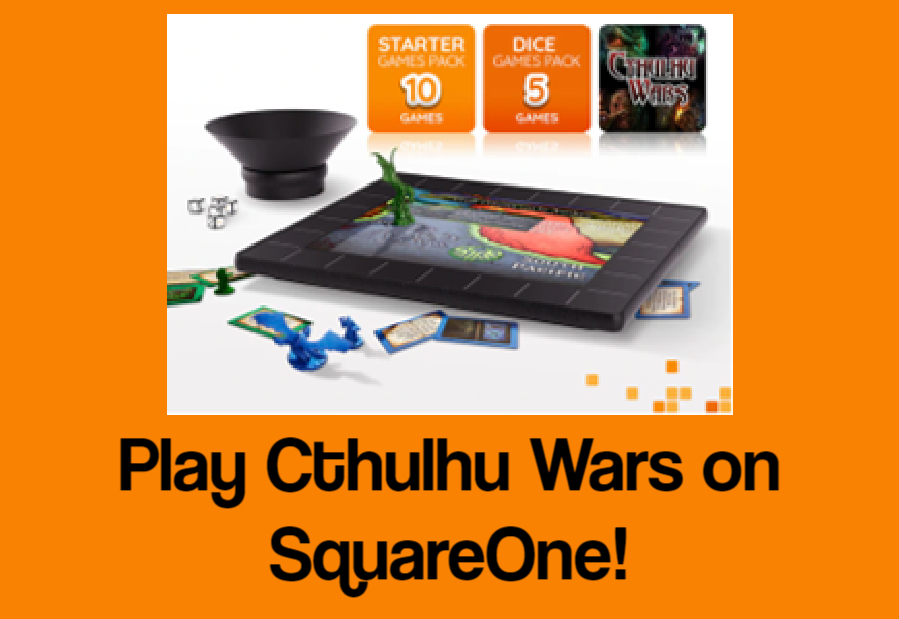
Design Corner – Potions & Profits
Potions and Profits came from the desire to build a game around imperfect information. There are many games about pushing your luck, value speculation, or just mitigating randomness but few built around giving players only general clues about the board state. A game with perfect information becomes one of low luck and high skill but this limits the enjoyment of many players. The game chess already exists and not everyone desires to play that game at every opportunity. On the other end of the spectrum are games that are high luck and low skill as the amount of information hidden from the players or random number generation makes it impossible to optimize play. I find that Potions and Profits sits in an interesting design space where it has some hidden information but every move a player takes grants imperfect information to every player, making every move engaging for everyone else at the table.
Potions and Profits intentionally uses multiple types of card backs. All players know if a player is playing “positive”, “negative”, or “weird” cards, but only the one holding the card knows how game changing the card is. As nearly all cards are played face down during games of Potions and Profits, all the players at the table can try to discern the reason a type of card was played at any given point. This creates the wonderful type of gameplay that can only be experienced with human players. It is the classic “I know that you know that I know that they know that I know…” situation. If there is a potion a specific player needs to win, everyone else may start throwing all their negative cards at it to try and make it no longer worth that player’s time. If that player then throws one of the “weird” cards face down on that potion, it creates a puzzle for everyone to mull over. Did that player just find a way to nullify all the negative cards or did they just throw in something useless to tempt someone else to take the still ruined potion? It is a much more interesting game scenario than face down cards with identical backs. Hidden information often leads to individual players trying to mitigate the randomness surrounding their own turns while imperfect information leads to interesting speculation around your and your opponent’s optimal play.
Players are unable to take an action in Potions and Profits without signaling to other players what their intent might be. Advanced players know that this applies to most every game but Potions and Profits puts that fact front and center for everyone to enjoy. Imperfect information gives the average gamer a taste of the high-level reading and bluffing that most games keep hidden away for only the veteran players to discover. Potions and Profits isn’t a game where players first memorize typical play sequences and then can later dedicate mental energy to reading other player’s actions. Reading other players and analyzing the board state is built into the game from the first time you open the box. When gamers start playing with the imperfect information of Potions and Profits, they may well learn how players present these clues in other games, without the need for differing card backs giving that away.
– Zoran Dobrijevic (Designer of Potions & Profits)







